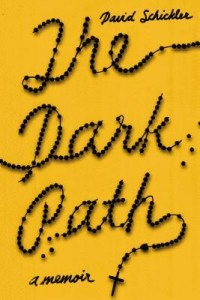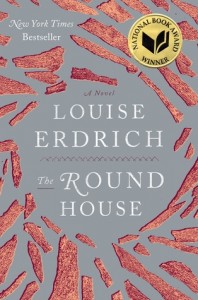 Title: By Blood We Live (Goodreads)
Title: By Blood We Live (Goodreads)
Author: Glen Duncan
Series: Bloodlines #3
Published: Knopf Doubleday, 2014
Pages: 368
Genres: Horror, Literary Fiction
My Copy: Hardcover
Buy: Amazon, Book Depository (or visit your local Indie bookstore)
It’s a sad day for me; Glen Duncan’s Bloodlines trilogy has finally come to an end. This series has been a favourite of mine and I have been desperate to get my hands on By Blood We Live. If you don’t know, this trilogy started off as a bit of a joke for Glen Duncan. One New Year’s Eve party he jokingly claimed that he would write a page-turner with werewolves, and “none of my usual philosophical angst or moral inquiry.” Having recently been dumped from a publisher (he had no best sellers and had won no awards) the move towards literary genre fiction was a recipe for success for Duncan.
In the early planning stages, Glen Duncan had planned to write a “clever narrative with a memorable antihero at its feral, furry heart”. Being disappointed by the recent wave of popular paranormal novels (Twilight, etc) Duncan drew from the horror novels he loved (Frankenstein and Dracula) as well as his favourite werewolf movie (An American Werewolf in London); the end result was The Last Werewolf. It was Duncan’s take on the werewolf novel; remaining true to the mythology, unlike other paranormal novel The Last Werewolf was gritty, violent and over sexed. Jake Marlowe is the last werewolf alive, with the pending extinction of his new race, will he give up? The novel was nothing like other horror novels I read, this was dark and literary.
Then came Talulla Rising, which continued the story, this time from the point of view of Talulla Demetriou; a strong female protagonist that both kick-assed and was full of inner torment (my catnip). Where The Last Werewolf looked at life and loneliness, Talulla Rising forced more on love and family. It has been a two year wait but finally By Blood We Live was finally released to conclude this fantastic trilogy.
In By Blood We Live we follow both Remshi, 20,000-year-old vampire that has been haunted by Talulla in his dreams. Having half the novel from a vampires perspective is an interesting change for fans of the series. This novel focuses on survival and humanity, which are both common elements in a paranormal novel but a nice way to tie this trilogy together. Talulla is been pursued by a Vatican-based Militi Christian group of monster hunters who have taking the place of the now defunct WOCOP (World Organisation for the Control of Occult Phenomena). Remshi tries to uncover why Talulla haunts him as well as trying to stop the recklessness of a newly turned vampire.
While I wasn’t disappointed by By Blood We Live, I felt like this book wasn’t as great as its predecessors. It did conclude the trilogy and there were some great moments within the novel, I just felt like it had less to say than the first two. The literary wasn’t as prominent, almost like Glen Duncan is moving into the realm of best-selling author. While he does deserve the success, I would hate to see Duncan throw away any sign of the literary in his future novels. Rest assured that the dark and gritty feel to this series is still there. Something I must have looked in the first two novels was the amount of literary and pop culture references have been made; I know they were always in this series but I noticed them so much more in this novel.
I loved this series and I plan to reread them sometime in the near future; I know I’ll need to return to these witty and dark novels. I also have to try some of his other books, I know he said he wasn’t going to add his “usual philosophical angst or moral inquiry”, but I’m so glad he did, it really works for him. I hope Glen Duncan continues on his literary genre fiction journey and I’m eagerly awaiting what he does next. Has anyone else read this series? Or does anyone want to try to predict what genres his next book will cover?

 Title: The Dark Path (
Title: The Dark Path ( Title: Eyrie (
Title: Eyrie ( Title: Snapper (
Title: Snapper ( Title: The Machine (
Title: The Machine ( Title: Joyland (
Title: Joyland ( Title: The Round House (
Title: The Round House ( Title: Lolita (
Title: Lolita ( Title: The Cocktail Waitress (
Title: The Cocktail Waitress ( Title: The Sense of an Ending (
Title: The Sense of an Ending (